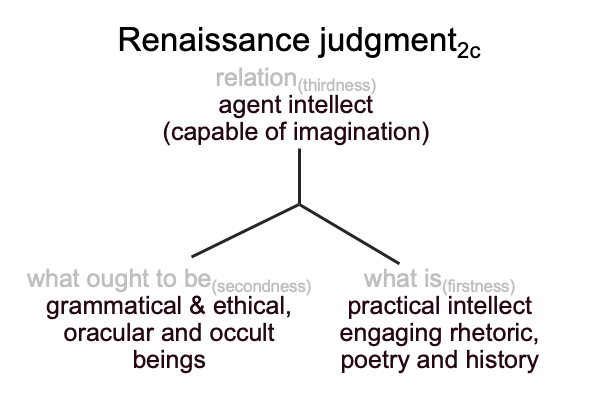0038 Redpath returns to the agenda of the Renaissance humanists.
In order to deconstruct scholastic psychology (presented in the prior blog), humanists confound the human imagination(situation-level potential1b), the practical intellect (associating to what is as an element of judgment2c) and the agent intellect (the relation inherent to judgment2c).
In doing so, these geniuses imbue the intelligible features of phantasms, corresponding to species expressa intelligibilis or what ought to be as an element of judgment2c, with secondness.
0039 Here is a diagram.

0040 Since all the elements are assigned unique categories, this judgment is actionable.
0041 What does this imply?
Petrarch’s project of reviving Roman political greatness develops a new profession, corresponding to an agent intellect (relation) imaginatively bringing a practical intellect engaged in rhetoric, poetry and history (what is) into relation with an occult being, or better, an oracular being, conveying the grammar of the world and its ethical implications (what ought to be).
Redpath calls this new vocation, “theologizing poet”.
And the corresponding discipline?
Poetic theology alchemically dissolves philosophy and theology with the solvents of rhetoric, poetry, and history. Then, the objects of humanist knowledge precipitate a coagulate of prophetic revelation. Poetic theology illuminates the deep grammar and the universal ethics afforded by a vision of political renewal.
0042 Does any of this sound vaguely contemporary?
